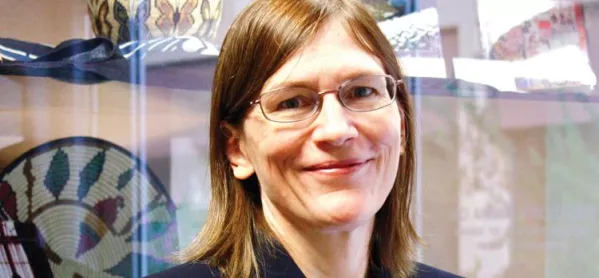Neuroscience should be taught to all teachers before they step into a classroom, an academic has said.
Barbara Oakley, professor of engineering at Oakland University, California, believes a greater understanding among teachers on how the brain works could help more pupils learn how to learn.
Professor Oakley, who will speak at the Headmasters’ and Headmistresses’ Conference (HMC) in Belfast today, says people learn best when they can toggle between two modes of thinking: focused attention and the “diffuse” mode in which they allow their thoughts to wander.
But not enough teachers and pupils know about these learning methods, Professor Oakley says.
The academic, who runs the world’s most popular Mooc (massive open online course) on the topic of learning how to learn, said: “This kind of information should be being taught to all teachers because it is directly about how we learn.”
‘Institutional inertia’
But Professor Oakley acknowledged that “institutional inertia” over the years had made this difficult. She added: “A lot of academic educators are not really advanced neuroscientists so I think it is hard for them to grapple with these new insights.”
Professor Oakley is bringing out a book next year - co-authored with Alistair McConville, deputy head of Bedales School - aimed at 10- to 15-year-olds, which will cover neuroscience topics - like the focused and diffuse modes - to reach pupils at an earlier age.
She said: “Students feel if they can’t figure it out right off the bat, then they must be stupid and that discipline is not for them. This is really seen in disciplines like Stem [science, technology, engineering and maths].
“That is when kids start falling off as they think they’re just not a maths person which just isn’t true at all. They just don’t know how to learn effectively and so they just give up.
“We are really trying to help kids get these learning tools early on so they can study things without putting themselves in a restricted box of ‘I can’t do this’ and ‘I can’t do that’.”
Daydream achievers
Professor Oakley advocates defined lengths of focused thinking with breaks in between where students return to a familiar task, listen to music, watch a video, or just indulge in a few minutes of daydreaming.
And the academic hopes the methods will help children and teachers when preparing for exams. She said: “Testing is a double-edged sword. It is an effective way of helping students learn. Students learn a bit better when they are under the stress of the test.”
But she acknowledged that a single-minded devotion to testing can “kill creativity”.
Professor Oakley hopes the book and her lessons will help teachers “walk the fine line between overkill in preparation for the test and also benefiting from tests”.
“It helps you to understand the best way to teach in a limited period of time and what is the best way for students to learn in a limited period of time so they can also go off and have fun,” she said.
Want to keep up with the latest education news and opinion? Follow Tes on Twitter and like Tes on Facebook




